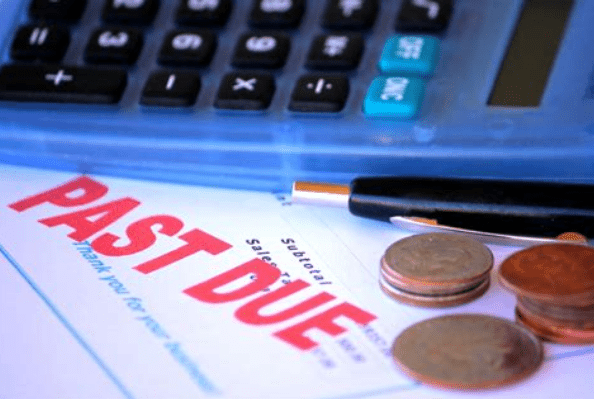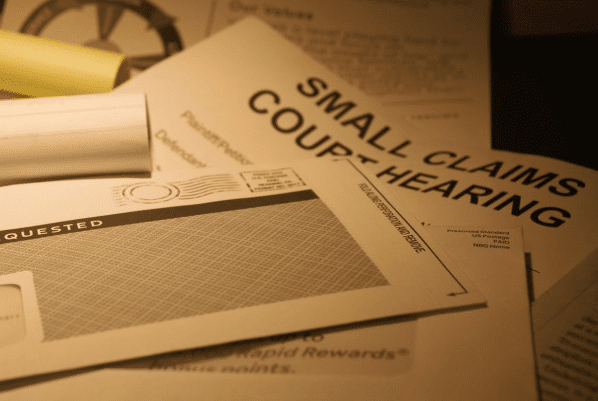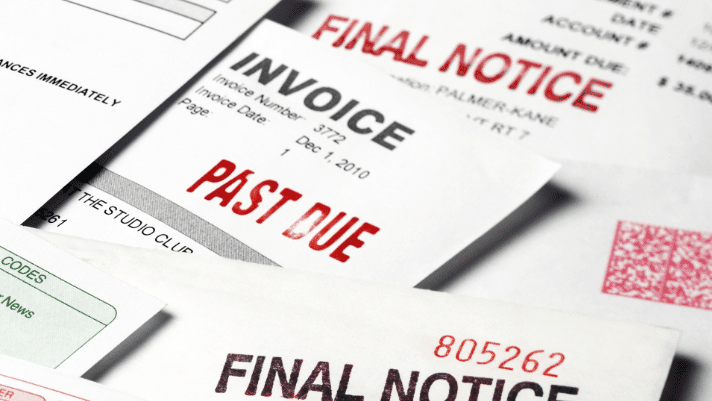If you’re facing a lawsuit for an old debt in Montana, ZumaZip can help you respond to the summons and navigate the debt collection process in Alaska. Our platform provides step-by-step guidance and resources to help you understand your rights and options when dealing with debt collection lawsuits.
With ZumaZip, you can access our Answer service, which will walk you through the process of responding to the summons and preparing your legal documents. Our team will review your documents to ensure accuracy and compliance with Alaska’s legal requirements before filing them on your behalf.
Don’t face debt collection lawsuits alone. Let ZumaZip assist you in protecting your rights and defending against creditor claims. Schedule a consultation with us today to learn more about how we can help you.
Use ZumaZip to make the right defense and win in court.
Responding to a debt summons in Alaska is time-sensitive, as you only have 20 days to file your answer with the court and serve the plaintiff or their attorney. Failure to respond within this timeframe may result in a default judgment being entered against you.
When drafting your answer, it’s essential to remain calm and remember that you have rights protected by state and federal laws. You can request verification of the debt and negotiate repayment options with the debt collector. If you dispute the debt or believe you don’t owe it, you can ask the collector to communicate with you in writing only or cease contact altogether.
Alaska law and the Fair Debt Collection Practices Act (FDCPA) require legitimate debts to be addressed. Therefore, if the debt is verified, it’s crucial to respond to the summons and consider negotiating a reasonable repayment plan.
If you’re unsure how to respond to a debt collection case in Alaska, ZumaZip offers a streamlined process to help you navigate the legal requirements more efficiently.
Remember to act promptly and seek assistance if needed to protect your rights and interests in the debt collection process.
Protect yourself from shady debt collectors with ZumaZip.
Responding to a debt collection lawsuit in Alaska involves several key steps to ensure you protect your rights and present your case effectively. Here’s a guide to help you navigate the process:
- Create an Answer Document: Start by creating an answer document that includes relevant information from the complaint and summons. This may include personal details, plaintiff information (such as the name of the company and attorney), court details (name, address, case number, district), and any other pertinent information.
- Respond to Each Allegation: Carefully review each paragraph of the complaint and respond to each allegation. You can admit to the allegations, deny them, or state that there is insufficient information to admit or deny. Be honest and accurate in your responses.
- File Your Answer with the Court: Once you’ve prepared your answer document, file it with the court within the specified deadline (usually 20 days from the date of service). Make sure to follow the court’s filing instructions and pay any required filing fees.
- Serve Your Answer on the Plaintiff: After filing your answer with the court, you must serve a copy of your answer on the plaintiff or their attorney. This ensures that all parties are aware of your response to the lawsuit. Follow the court rules for proper service of documents.
- Consider Your Defense Strategy: As you prepare your answer, consider your defense strategy. This may involve gathering evidence, such as documentation of payments made or communication with the creditor, to support your case. If you have legal questions or need assistance, consider consulting with an attorney.
- Attend Court Hearings: Be prepared to attend any scheduled court hearings related to the lawsuit. Follow the court’s instructions and adhere to any deadlines for submitting additional documents or evidence.
- Explore Settlement Options: Throughout the process, you may have the opportunity to explore settlement options with the plaintiff. Consider negotiating a repayment plan or settlement agreement that works for both parties, if feasible.
By following these steps and responding to the debt collection lawsuit in a timely and thorough manner, you can effectively address the allegations and protect your rights in the legal process. If you need assistance or have questions about how to proceed, consider seeking legal advice or using resources like ZumaZip to help you navigate the process more efficiently.
Use ZumaZip to make an affirmative defense fast.
Asserting affirmative defenses can be a crucial strategy in defending against a debt collection lawsuit in Alaska. Here are some affirmative defenses that you may consider using in your case:
- Not Your Debt: If you believe that the debt in question is not yours due to errors in financial records or identity theft, you can assert this defense. Provide evidence to support your claim and challenge the plaintiff’s ownership of the debt.
- Incorrect Amount: If you have made payments towards the debt or believe that the amount claimed by the plaintiff is inaccurate, you can raise this defense. Provide documentation of any payments made and challenge the accuracy of the plaintiff’s claim.
- Unknown Plaintiff: Challenge the plaintiff to prove ownership of the debt by requesting documentation and evidence of their rights to collect the debt. If the plaintiff cannot prove ownership, you may have grounds to dismiss the case.
- Statute of Limitations: Check Alaska’s statute of limitations on the debt in question. If the statute of limitations has expired, you can assert this defense to argue that the plaintiff’s claim is time-barred.
- Already Litigated: If the debt in question has already been litigated in a previous court case, you can raise this defense. Provide the case number, filing date, and details of the previous litigation to support your defense.
- Bankruptcy: If the debt was discharged in a bankruptcy case, you can assert this defense to challenge the plaintiff’s right to collect the debt. Provide the court case number and date of filing for the bankruptcy case.
- Improper Collateral: If the debt involves collateral, such as a loan secured by property, you can challenge the validity of the collateral or the creditor’s actions regarding its sale. Provide evidence to support your claim of improper collateral handling.
By asserting these affirmative defenses and providing evidence to support your case, you can strengthen your position in defending against the debt collection lawsuit. It’s essential to review the specific details of your case and consult with a legal professional for personalized advice on the best defense strategies to pursue.
In Alaska, a creditor must provide written notice of the sale of your collateral in a reasonable time before selling the collateral, usually ten days. This notice of sale must contain the following information.
- Your name and that of the creditor.
- A description of the collateral.
- A description of the time and date of sale.
- A warning that if the collector sells the collateral for less than you owe, you still owe them a debt.
- A phone number to contact the creditor in case you want the collateral back.
- An offer to provide full accounting details of the debt.
Use ZumaZip to respond in 15 minutes and win your case.
In Alaska, after preparing your answer to the debt collection lawsuit, you need to file it in court and serve a copy on the plaintiff. Here’s how to do it:
- Serve the Plaintiff: Make two copies of your answer form. Serve one copy on the plaintiff or their attorney by hand delivery or mail. If the plaintiff has an attorney, serve the attorney directly. Keep the other copy for your records. Remember to note the date and method of service in the Certificate of Service section of your original answer form.
- File Your Answer in Court: File your original answer and any counterclaim in court within the 20-day deadline from when you were served the summons. If the deadline falls on a weekend or holiday, file on the next business day. File your documents in the court location specified on the summons.
- Consider Using ZumaZip: To simplify the process and ensure timely filing and service, consider using ZumaZip to submit your answer electronically. ZumaZip can help you navigate the paperwork and deadlines associated with responding to a debt collection lawsuit.
By following these steps and ensuring proper filing and service, you can effectively respond to the debt collection lawsuit and protect your rights in the legal process.
Alaska has strict laws and regulations in place to protect consumers from unfair and deceptive debt collection practices. Here are some key points to know:
- Prohibited Practices: Debt collectors cannot use threats, abusive language, or harassment tactics to collect a debt. They also cannot make deceptive or misleading statements, such as falsely claiming legal action or misrepresenting themselves as attorneys.
- Contact Restrictions: Debt collectors are limited in when and where they can contact you about a debt. They cannot contact you at your workplace or call you before 8:00 am or after 9:00 pm. Additionally, they cannot contact third parties regarding your debt, except to obtain your contact information.
- Cease Communication Request: If you request in writing for a debt collector to stop contacting you, except to notify you of specific actions like legal proceedings, they must comply with your request.
- Federal Protections: In addition to Alaska’s laws, debt collection practices are also regulated by the federal Fair Debt Collection Practices Act (FDCPA). This act provides further protections against abusive and deceptive practices by debt collectors.
- Enforcement: Violations of debt collection laws can result in legal action and penalties against the debt collector. Consumers have the right to file complaints with state authorities or pursue legal action against collectors who violate their rights.
Understanding these laws can help you protect yourself from abusive debt collection practices and assert your rights when dealing with debt collectors in Alaska. If you believe a debt collector has violated your rights, you may consider seeking legal advice or filing a complaint with the appropriate authorities.
Don’t let debt collectors intimidate you. Respond with ZumaZip
In Alaska, wage garnishment is limited by the “Alaska Exemptions Act,” which provides protections for individual rights. Some types of wages are exempt from garnishment, including:
- State and local pensions, such as those for public employees, teachers, and judges.
- Certain insurance benefits, like disability payments and life insurance proceeds if you are the insured dependent or spouse.
- Child support collections and alimony, up to the salary exemption amount, handled by child support services.
If a creditor successfully sues you, they may be able to garnish up to 25 percent of your disposable income. However, not all debts may be subject to garnishment, and exemptions may apply based on your circumstances.
In this context, disposable income refers to your total personal income minus current taxes. Understanding these exemptions can help protect your income from excessive garnishment in Alaska.
Understanding Alaska’s statute of limitations
| Alaska Statute of Limitations on Debt | |
| Debt Type | Deadline in Years |
| Credit Card | 3 |
| Medical | 3 |
| Auto Loan | 4 |
| State Tax | 6 |
Source: Findlaw | |
Before responding to a debt collection summons, you must check the debt’s Statute of Limitations. Repaying a debt whose Statute of Limitations has already expired could effectively restart the Statute of Limitations – afresh.
Even though the Statute of Limitations does not erase the debt, it does turn it into a “time-barred debt.” With such a debt, a collector may still follow up on the repayment. However, they cannot legally sue you.
Some creditors may still call and send you letters even when the Statute of Limitations on debt already expired.
If a debt collector attempts to collect a payment on a time-barred debt, you can write a letter asking the agency to stop contacting you. You may also need to consult an attorney if a creditor sues you after the Statute of Limitations has expired.
Use ZumaZip to protect your wages and property.
Overcoming debt in Alaska can feel daunting, but there are several strategies you can employ to regain control of your finances without resorting to credit counselors or taking on additional loans. Here are some effective options:
Debt consolidation: Simplify your payments by combining multiple debts into one loan with a single monthly payment. This can make it easier to manage your finances and stay on top of your debt obligations.
Loan refinancing: Explore opportunities to refinance your existing loans with better terms and lower interest rates. Improving your credit score may increase your chances of qualifying for favorable refinancing options.
Legal assistance: Seek support from legal aid organizations in Alaska that specialize in consumer protection and debt relief. Organizations like Money Management International and the Northern Justice Project offer counseling services and legal assistance to help you navigate your debt challenges.
Taking proactive steps, such as responding to debt summons with affirmative defenses and timely filing of answers, can also contribute to resolving your debt issues effectively. Remember, with the right resources and assistance, it’s possible to overcome debt and regain financial stability. And if you’re facing a debt summons, platforms like ZumaZip provide a straightforward and legal way to respond and address the situation.
ZumaZip simplifies the process of responding to a debt collection lawsuit. Here’s how it works: ZumaZip is a user-friendly web application that guides you through the steps to complete your answer to the lawsuit. Once you’ve finished answering the questions, you have the option to print the completed forms and mail them to the courts yourself. Alternatively, you can choose to pay ZumaZip to file the documents for you and have an attorney review them for added peace of mind.
What is ZumaZip?
ZumaZip is a convenient solution designed to streamline your response to a debt collection lawsuit. Here’s a breakdown of what you can expect when you use ZumaZip:
Firstly, you’ll access our user-friendly web application, which guides you through the process step by step. You’ll be prompted to answer a series of questions related to your specific situation. Once you’ve completed the questionnaire, you have the option to either print out the finalized forms and mail them to the appropriate courts yourself, or you can opt to utilize ZumaZip’s services to file them on your behalf. Additionally, if you choose this option, an attorney will review your document for added peace of mind.
If you’re seeking guidance on how to effectively respond to a debt collection lawsuit, ZumaZip can provide the assistance you need. Feel free to explore our FAQs for more information on what ZumaZip has to offer.
What if I haven’t been sued yet?
If you’ve only received a collections notice, but not a lawsuit, the best way to respond is with a Debt Validation Letter. When a debt collector contacts you in any way, whether it’s by phone or mail, you can respond by formally requesting a debt validation with a Debt Validation Letter . This letter notifies the collector that you dispute the debt and forces them to provide proof you owe the debt. They can’t call you or continue collecting until they provide validation of the debt. This flowchart shows how you can use a Debt Validation Letter to win.
Get started with a Debt Validation Letter here.
How to Answer a Summons for debt collection in all 50 states
Here’s a list of guides on how to respond to a debt collection lawsuit in each state:
- Alabama
- Alaska
- Arizona
- Arkansas
- California
- Colorado
- Connecticut
- Delaware
- Florida
- Georgia
- Hawaii
- Idaho
- Illinois
- Indiana
- Iowa
- Kansas
- Kentucky
- Louisiana
- Maine
- Maryland
- Massachusetts
- Michigan
- Minnesota
- Mississippi
- Missouri
- Montana
- Nebraska
- Nevada
- New Hampshire
- New Jersey
- New Mexico
- New York
- North Carolina
- North Dakota
- Ohio
- Oklahoma
- Oregon
- Pennsylvania
- Rhode Island
- South Carolina
- South Dakota
- Tennessee
- Texas
- Utah
- Vermont; Vermont (Small Claims court)
- Virginia
- Washington
- West Virginia
- Wisconsin
- Wyoming
Guides on how to beat every debt collector
Hey there! Facing off against a debt collector can feel like a daunting challenge, but fear not! We’re here to help you navigate through it all with our handy guides designed to assist you in beating every debt collector you encounter. Whether you’re facing a new lawsuit or dealing with a persistent collector, we’ve got your back. Stay positive, stay informed, and let’s tackle this together!
- Absolute Resolutions Investments LLC
- Accredited Collection Services
- Alliance One
- Amcol Clmbia
- American Recovery Service
- Asset Acceptance LLC
- Asset Recovery Solutions
- Associated Credit Services
- Autovest LLC
- Cach LLC
- Cavalry SPV I LLC
- Cerastes LLC
- Colinfobur
- Covington Credit
- Crown Asset Management
- CTC Debt Collector
- Cypress Financial Recoveries
- Delanor Kemper & Associates
- Eagle Loan of Ohio
- Educap
- Estate Information Services
- FIA Card Services
- Forster & Garbus
- Freshview Solutions
- Fulton Friedman & Gullace LLP
- Harvest Credit Management
- Howard Lee Schiff
- Hudson & Keyse LLC
- Integras Capital Recovery LLC
- Javitch Block
- Jefferson Capital Systems LLC
- LVNV Funding
- Mannbracken
- Mariner Finance
- Medicredit
- Michael J Adams PC
- Michael J Scott
- Midland Funding LLC
- Mullooly, Jeffrey, Rooney & Flynn
- Mountain Land Collections
- MRS Associates
- National Collegiate Trust
- Nationstar Foreclosure
- Northstar Capital Acquisition
- NCEP LLC
- NRC Collection Agency
- OneMain Financial
- Palisades Collection LLC
- Pallida LLC
- Paragon Revenue Group
- Pinnacle Collections Agency
- PMAB LLC
- Portfolio Recovery Associates
- Provest Law
- PYOD LLC
- Reunion Student Loan Finance Corporation
- Revenue Group
- Regents and Associates
- RSIEH
- Salander Enterprises LLC
- Second Round Sub LLC
- Security Credit Services
- Sherman Financial Group
- Suttell and Hammer
- T-Mobile
- Transworld Systems
- Tulsa Teachers Credit Union
- UCB Collection
- Velo Law Office
- Velocity Investments
- Waypoint Resource Group
- Weinberg and Associates
- Wolpoff & Abramson
Settle your medical debt
Having a health challenge is stressful, but dealing medical debt on top of it is overwhelming. Here are some resources on how to manage medical debt.
- Am I Responsible for My Spouse’s Medical Debt?
- Do I Need a Lawyer for Medical Bills?
- Do I Need a Lawyer to Fight Medical Bill Debt?
- Does Bankruptcy Clear Medical Debt?
- How Much Do Collection Agencies Pay for Medical Debt?
- How to Find Medical Debt Forgiveness Programs
- Is There a Statute of Limitations on Medical Bills?
- Medical Debt Statute of Limitations by State
- Summoned to Court for Medical Bills — What Do I Do?
- Summoned to Court for Medical Bills? What to Do Next
Stop calls from Debt Collectors
Do you keep getting calls from an unknown number, only to realize that it’s a debt collector on the other line? If you’ve been called by any of the following numbers, chances are you have collectors coming after you, and we’ll tell you how to stop them.

































